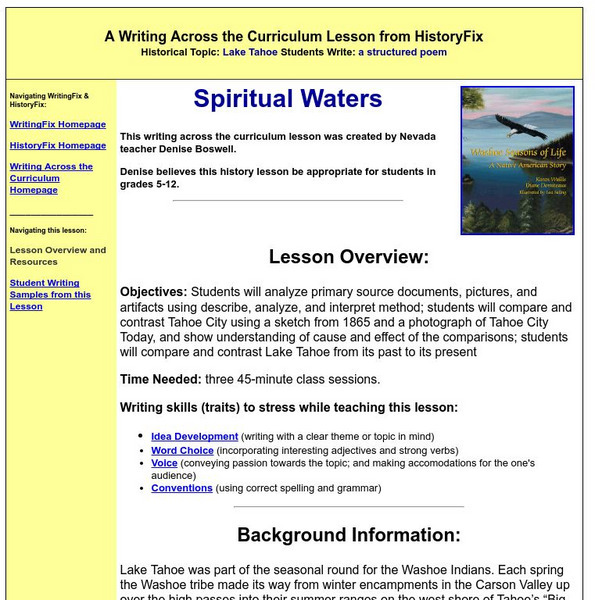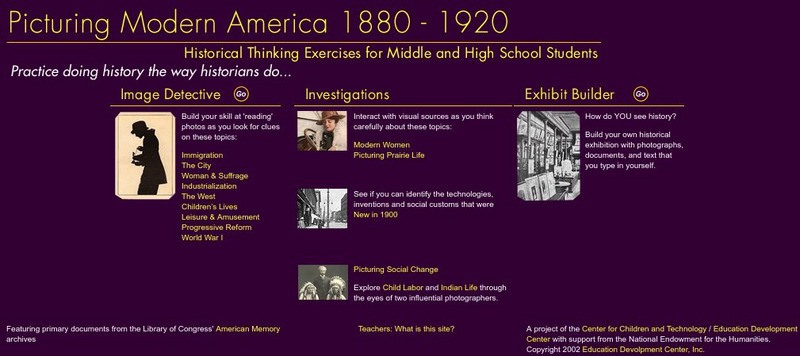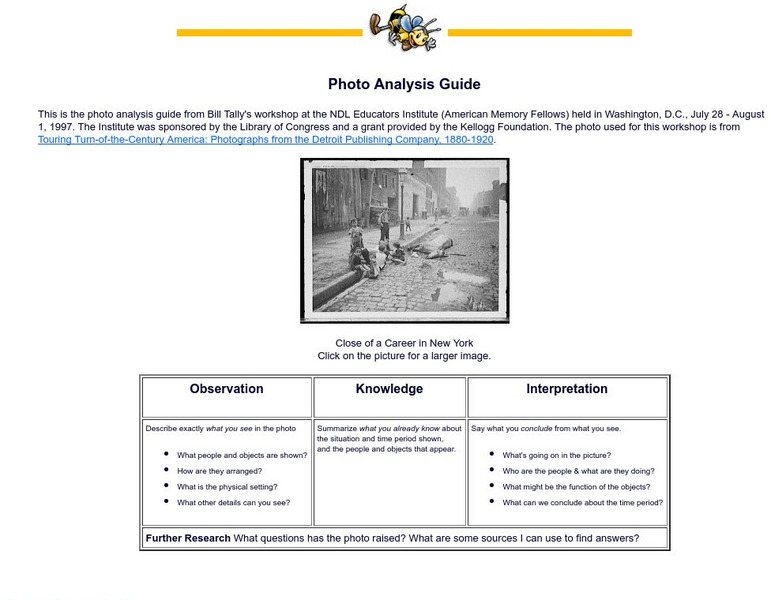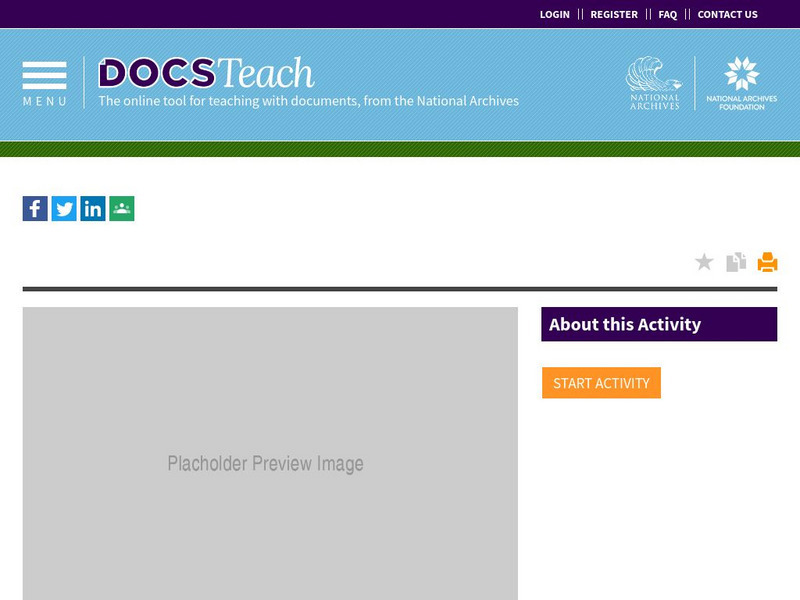Hi, what do you want to do?
Writing Fix
Writing Fix: Spiritual Waters
After analyzing primary source documents, pictures, and artifacts, students will use the describe, analyze, and interpret method to compare and contrast a sketch of Tahoe City in 1865 to a photograph of modern day Tahoe City. Then...
Education Development Center
Center for Children and Technology: Picturing Modern America
Collection of visual resources designed to engage learners in historical thinking; that is, learning to think like historians. Activities and visuals focus on a forty-year period in American history, from 1880 to 1920, making relevant a...
Library of Congress
Loc: Teachers: Personal Stories and Primary Sources
Students will explore the value of personal stories and first-hand accounts when exploring history, in this case, the events of the early twentieth century, which included World War I and the Great Depression. Through this five-unit...
University of California
Uc Irvine: Distinguishing Between Primary & Secondary Sources
This site has an online quiz to test your knowledge of primary and secondary sources.
Curated OER
Sophia: Analyzing the Author Tutorial
A photograph of a man writing while sitting on the ground leaning against a tree in a cemetery on a sunny day.
Cyberbee
Cyberbee: Photo Analysis Guide
This site is a guide to help students analyze visual media. Further research questions included.
ArtsNow
Arts Now Learning: Cultural Characters: World War Ii Conversations [Pdf]
In this lesson plan, students use photos of people in real-life World War II events as a springboard for composing dialogue between the people in the photographs. Students then work in pairs to create a scene set in World War II and...
US National Archives
Docsteach: Watching What?
Students will hypothesize what the president and cabinet members were watching on television by analyzing facial expressions, and body language, and the physical environment. Students will learn that President Ronald Reagan and his staff...
Library and Archives Canada
Nlc: Defining Primary and Secondary Sources
Libraries and archives hold documents and books that can be used for your research projects. Learn how to divide and identify them into primary and secondary sources in this tutorial.
Curated OER
History Matters: Making Sense of Documents
Designed to help teachers and students make effective use of primary documents. There are well written section on how to make sense of numbers, ads, music, diaries, and more. included are interactive activities for students to help them...
ClassFlow
Class Flow: Wild Shots, They're My Life
[Free Registration/Login Required] Use this flipchart with the Harcourt Series Reading, Wild Shots. Explore different characteristics of animals in the story. Analyze the pros and cons to being a photographer in the story.
University of California
Cal Heritage Collection: Using Primary Sources
This resource covers what primary sources are, where we can find them, and how we can assess them in the classroom.
ArtsNow
Arts Now Learning: Grade 3: Rock N Art
In this arts integrated unit, 3rd graders will explore Rocks and Soil. These projects focus on bringing multiple art forms to the Earth Sciences for third graders. Students will focus on comparing and contrasting the 3 types of rocks, as...
Other
New Brunswick Museum: Social Reality Portrayed Through Pictures
In this instructional activity, students use photographs from the early days of Saint John, New Brunswick to analyze its evolving social fabric, and complete a research project. Click on the Word files to access the instructional...
Climate Literacy
Clean: Mt. Pinatubo and the Atmosphere
This lesson explores the impact of volcanic eruptions on the atmosphere. Students will analyze three types of visual information: a graph of aerosol optical depth v. global temperature, a global map with temperature anomalies, and an ash...
A&E Television
History.com: 10 Things You May Not Know About the Cuban Missile Crisis
Explore 10 surprising facts about the moment when the Cold War turned red-hot.















